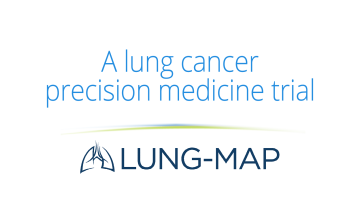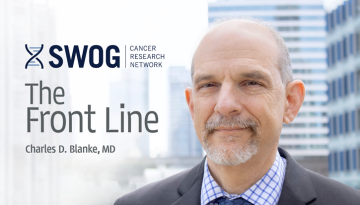Vaccine Mandates in Line with Our Mission
The organizations ASCO and Friends of Cancer Research recently issued a joint statement urging that COVID-19 vaccine clinical trials include individuals with cancer or with a history of cancer.
They saw a need for such a statement because thus far clinical trials of COVID-19 vaccines have explicitly excluded those with cancer. The result has been uncertainty about whether the vaccines now in use under emergency authorization are safe and effective for patients with a history of cancer or undergoing current treatment for cancer. Unfortunately, these are also some of the persons at greatest risk for severe illness if they contract COVID-19.
Lacking substantial evidence from clinical trials as to whether vaccines are safe and effective in these patients, professional organizations such as ASCO have been forced to make their recommendations about whether patients with cancer should be vaccinated based primarily on expert opinion. We respect expertise, but SWOG members know well that nothing substitutes for the evidence from well-run clinical trials. Remember, our mission states we aim to significantly improve lives through cancer clinical trials (and translational research).
Does putting patients with cancer on vaccine trials count? Of course it does. SWOG performs a wide variety of research types, from classic drug treatment comparisons to population science prevention assessments to tests of whether text messaging reminders improve compliance. We do secondary and subset analyses from big trials all the time. Helping determine whether vaccines are the right choice for our patients fits in perfectly.
Recently, some clinical evidence emerged from two studies published in the journal Cancer Cell that looked exclusively at patients with cancer – one study of 200 such patients and another study of 131. All patients were vaccinated against the virus that causes COVID-19, using one of the approved mRNA vaccines. In both studies, the researchers found that 94 percent of patients had developed antibodies against the virus several weeks after their second dose of vaccine, with response rates in patients with solid tumors higher than rates seen in patients with hematological malignancies. These results follow on reports from several studies in May that suggested vaccine response rates among patients with cancer might be somewhat lower than this. The lack of definitive evidence from large clinical trials means many of our patients remain unvaccinated and at risk from the virus, because they choose not to take the vaccine or may even be advised not to do so by their physicians. We have to resolve the question.
There are many ways SWOG members can improve the lives of patients with cancer. Ensuring their safety is on that list. Last week I appended a note to my Front Line post relating a decision we had made, after much debate among SWOG leadership, to require that all who physically attend our fall group meeting in Chicago be vaccinated. We did not take this decision lightly. But we weighed a desire to respect contrary opinions that might keep some from getting vaccinated against the fact that most of us interact regularly with patients who have been immunocompromised by cancer or cancer treatment. We unanimously determined that our obligation to our patients required that all of us who attend group meeting take all possible steps, based on guidance from the Centers for Disease Control, to minimize the risk of spreading the virus.
In brief, we must all be fully vaccinated against the virus before convening in Chicago. Just like we must determine if vaccines work in our patients.
Other Recent Stories



